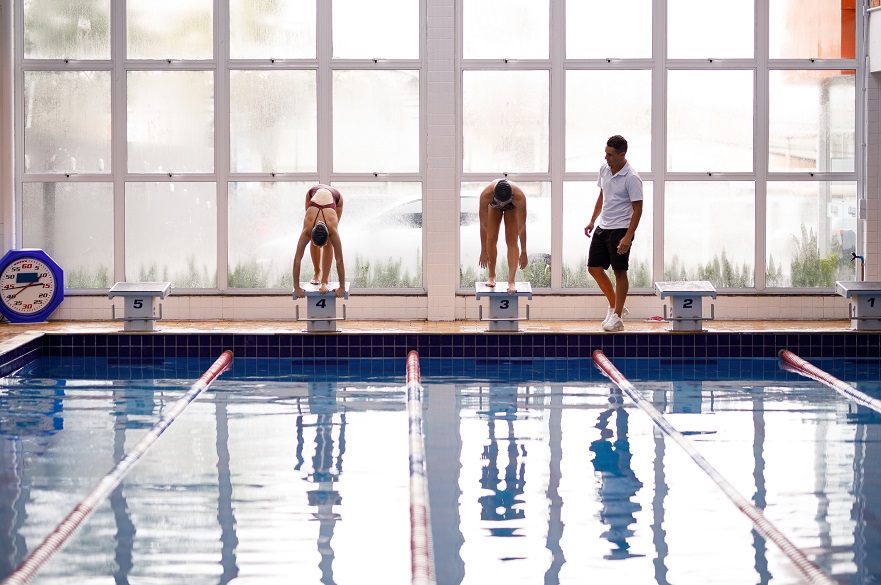Expert blog: ‘Knowing me, knowing you’: the importance of athlete-coach relationships in achieving success
Joseph R. Stanford, Postgraduate Researcher in Sport & Exercise Psychology, and Laura C. Healy, Senior Lecturer in Sport & Exercise Psychology
By Joseph R. Stanford | Published on 29 March 2022
Categories: Press office; Research; School of Science and Technology;

With the Winter Olympics only just behind us it’s important to note that the moment of winning on the international athletics stage, glorious as it may be, is only the final scene. A snapshot that represents years of hard work between a coach and an athlete. The line between winning and losing is often attributed to financial investment, superior technological advancements, or innovative ideas such as marginal gains. While focus will always continue to increase on what is the next new competitive advantage, it is important not to lose sight of the fact that international success is often determined by the quality of the relationship between coach and athlete. This relationship can be influenced by many factors, including personalities.
Our research extends current thinking in this area, by demonstrating that to have a successful relationship, both coaches and athletes need to have an excellent understanding of who the other person is – that is accurately recognising key personality traits in their partner. This appears more important than commonly held beliefs such as ‘opposites attract’ or ‘birds of a feather flock together’, as coach-athlete pairings with both similar and different personalities felt that it was the combination of their individual traits that helped them to click.
We asked four elite swimmers and their coaches to complete questionnaires related to their personality traits. These were based on the ‘big five’ personality traits of: openness, conscientiousness, agreeableness, extraversion and neuroticism. Both coaches and athletes were asked to rate their own traits, but also their perceptions of their partner’s characteristics. We then interviewed the swimmers and their coaches individually, using the summaries of their questionnaires as discussion points, about how they perceived their respective personality traits to contribute towards their relationship.
Fostering positive relationships
If you watch the Olympics, it soon becomes clear that there is no one type of winning personality a coach, or an athlete, has. This is not surprising given athletes and coaches are people, and people are all different. Our research has indicated that it’s not what type of personality an elite coach or athlete has that makes them successful, but what the coaches or athletes do with each other’s personality to win on the international stage. This is achieved in three ways.
Perceived compatibility – Elite coaches and athletes must feel their own and their partner’s personalities were the right fit to achieve their performance goals. In our study, coaches and athletes used areas of similarity in their personalities to coordinate thoughts and feelings together. This enabled them to increase their understanding of each other, and to better predict their partner’s behaviours. Any areas of dissimilarity in their personalities were also used to their advantage, as this allowed for them to work together. In particular, perceiving that their partner had a different set of characteristics to them meant that both coaches and athletes felt that between them, one of them would have the specific combination of traits to cope with the challenges they were presented with on the elite stage. For example, during immense stress in international competitions, the coach or athlete who has a tendency towards being calm and confident will provide a calm, even-tempered and secure environment for their partner so that they can both perform optimally.
Collective personality – Elite coaches and athletes believe the specific and individual combination of their two personalities together allows them to form a positive relationship. They achieve this through coaches trying to develop their athlete’s personalities, therefore improving them as people. An example from our study was coaches developing their athletes, who showed high levels of introversion within their relationship, how to have the ability to perform in an extroverted manner on the international stage. When elite coaches and athletes’ personalities meet, a process of exploratory behaviours takes place where both coaches and athletes create new ideas together to ensure their relationship is unique and tailored to each other’s needs. Finally, they acknowledge to each other how their individual relationship is organized, trustworthy and hard working to attain their shared goals. This provides a consistent and stable foundation within their relationship.
Personality persona – Both members of an elite coach-athlete relationship will display a particular set of behaviours that don’t fit with their natural personality, in order to benefit their relationship. Specifically, both coaches and athletes will appear to be more outgoing, warm and adventurous towards each other. Coaches do this in order to maintain positive communication with their athletes, whereas athletes do so to mask the level of fatigue they might be experiencing. Also, elite coaches and athletes have an extremely strong awareness of their own and their partner’s personalities. This again allows them to adopt behaviours that they perceive their partner to want.
This work shows how important it is for athletes and coaches to have a deep understanding of who their partner is, as it allows them to build a trusting and successful relationship. This was perceived to ultimately enhance performance in elite swimmers performing on the international stage. Our ongoing work will support coaches and athletes at any level to be successful together in the pursuit of international success.